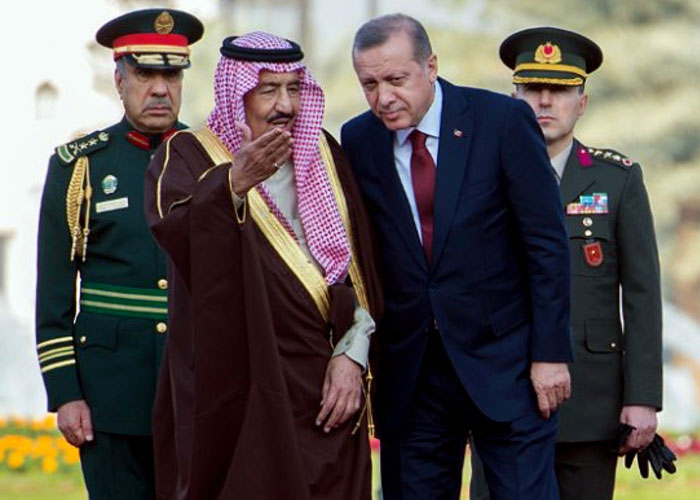Is Russia going soft on Assad?
Raed Omari/Al Arabiya/December 30/15
Russia is progressively unveiling the objectives behind its large-scale military operations in Syria. Moscow is literally remapping the country to serve its long-term strategic interests, and to change its status in Syria from key player to sole manager. Russia claimed that its aim in intervening directly was to fight the Islamic State of Iraq and Syria (ISIS). However, skepticism has increased, with many parties – including Washington – accusing Moscow of hitting the opposition to save the deteriorating regime. To challenge these allegations, Russia increased its bombing of ISIS and urged coordination from other countries.Today, however, Moscow does not seem worried about the world’s perception of its role in Syria. Moscow may be ready to soften its stubborn stance on Syrian President Bashar al-Assad as long as his replacement does not threaten its interests. In its bid to dominate, Russia has reportedly entered talks with the opposition Free Syrian Army (FSA). This is likely to be true in light of the decrease in FSA attacks against regime forces. Russia is trying to make its own recipe for a solution in Syria, but its goal is wider. It hopes that its increasing military engagement in Syria will create a deal with the West over Ukraine that ends sanctions, which are hurting Russia’s economy, particularly given the sharp decline in oil prices. Moscow also hopes to fill the regional power vacuum left by U.S. withdrawal from the Middle East.
Russian statements
As such, Moscow may be ready to soften its stubborn stance on Syrian President Bashar al-Assad as long as his replacement does not threaten its interests. Recent remarks by Russian officials point to this softening. In his traditional end-of-year news conference, President Vladimir Putin made no mention of Assad being a necessity for Moscow, saying only that Syrians themselves should decide who leads them. Russian Foreign Minister Sergei Lavrov said the Kremlin wanted Syria to prepare for parliamentary and presidential elections. Foreign Ministry spokeswoman Maria Zakharova was more explicit. When asked in November whether it was crucial for Moscow that Assad remain in power, she replied: “Absolutely not, we’ve ever said that… Only the Syrian people can decide the president’s fate.”Russia’s softening on Assad is also related to the U.S. position. Washington has spent a lot of resources and diplomatic effort on him stepping down, and so is unlikely to change course. France, Britain, Germany and regional states also want Assad to stand down, as he bears responsibility for the conflict by waging war on his own people. Moscow cannot afford to be at odds with all these major players because it would mean more isolation.
Will Russia boost Mideast ties in 2016?
Maria Dubovikova/Al Arabiya/December 30/15
The year 2015 was very controversial and ambiguous for Russia, particularly regarding its military and foreign policies. Its unprecedented involvement in the Middle East, and its engagement with the Muslim world, reflect fundamental changes in Russia’s self-positioning on the world stage. Many Middle Eastern countries became important strategic partners, and Russia – where Muslims and Christians coexist peacefully – showed readiness to contribute to the global fight against extremism, and to promote moderate Islam. Moscow increased cooperation with the United Arab Emirates (UAE), Saudi Arabia and Egypt. Even the current ban on flight communication between Russia and Egypt, temporarily imposed by Moscow, cannot spoil bilateral ties because it is based on security matters, not political ones.
The coming year will be marked by the improvement of Russian ties with Middle Eastern countries.
Russia has demonstrated its willingness to challenge U.S. dominance of the Middle East military market, with cheaper and sometimes better military equipment. Moscow finally delivered the S-300 missile system to Iran following a deal reached long ago, and its delivery did not have regional repercussions. Nor did Russia’s S-400 deployment in Syria – on the contrary, it has forced all sides involved in the conflict to be more restrained and think twice before acting. In 2015, Russia demonstrated how far it would go to defend its national interests, with little to lose after being put under pressure and threatened for too long, particularly due to the Ukraine crisis. Russians view Western sanctions as unmasking unfriendly intentions, and so have had the effect opposite to the one expected. The coming year will be marked by the improvement of Russian ties with Middle Eastern countries. The Kremlin awaits the visits of the Saudi and Moroccan kings, and the inauguration of investment, industrial and commercial projects in and with Middle Eastern countries. Russia will also try to substitute European and Turkish goods with those from the region.
Obstacles
However, developments from 2015 will limit Moscow’s room for maneuver. The dramatic fall in oil prices will continue to dampen the Russian currency. The bombing of a Russian civilian plane over the Sinai that killed 224 people, and the continuing terrorist threat will weigh on personal liberties and domestic security, hurting civil society and democracy in Russia. The deterioration of relations with Turkey due to the downing of a Russian fighter jet complicates Moscow’s position in the Middle East. Its expensive military operations in Syria will not end soon as there is no predetermined time limit and the goals are vague – this will weigh heavily on the national budget and economy. To overcome these difficulties, Russia will diversify and develop its ties with Middle East countries. Most likely its policies will remain unchanged, no matter what the risks. The year 2015 was tough, but the coming year may be tougher.























